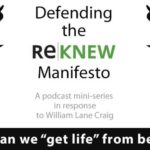We run our website the way we wished the whole internet worked: we provide high quality original content with no ads. We are funded solely by your direct support. Please consider supporting this project.

False Gods in the Church
We often think of an idol as a statue, but an idol can be anything we use to meet the needs that only God can meet. In other words, a false god.
There is no end to the false gods we create. In Western cultures we often strive to feel worth and significance by acquiring money, possessions, and power. We bow down to the false gods of materialism and control. Some try to relieve their inner emptiness by trying to get approval for being sexy, talented, or successful. They bow down to a false god of fame. Some feed their hunger for life by convincing themselves they’re special to God because they believe all the right things and engage in all the right behaviors—in contrast to others who believe the wrong things and engage in all the wrong behaviors. These bow before the false god of religion, which is one of the ways that idols end up in the church.
When we chase after false gods, we seldom realize what we’re doing. We don’t think of it as idolatry. In fact, it’s possible to bow to false gods while believing you’re bowing to Jesus Christ. What we believe often has little to do with reality.
In the West, we tend to attach great importance to what we believe. This seems to be especially true of Christians. We treat beliefs as though they have magical power, as though merely believing something makes it so. For instance, many assume that believing Jesus is Lord of their life magically makes him Lord. This is undoubtedly why so many evangelical churches spend an exorbitant amount of energy getting people to make a one-time confession of belief.
The truth is, merely believing Jesus is Lord no more makes him Lord of my life than believing Vladimir Putin is the president of Russia makes me his follower. For Putin to be my leader, I would need to submit my life to him and become a citizen of Russia. Likewise, for Jesus to be my Lord, I need to submit my life to him and become a citizen of his Kingdom.
This does not mean that beliefs are not important. Obviously it’s impossible to surrender to Jesus unless you first believe that he is Lord. Still, the belief is not itself the surrender. Embracing a belief is something you do in your mind. Actually surrendering your life is something you can only do with your will.
The important question, then, is not what you believe. The important question is what you decide to do, moment-by-moment, on the basis of what you believe.
—Adapted from Present Perfect, pages 46-48
Photo credit: Criss! via Visual hunt / CC BY
Category: General
Tags: Belief, Religious Idolatry
Related Reading

You Have What We Call a Theological Problem
Peter Enns posted a blog entitled: Dear Christian: If the Thought of Either Romney or Obama Getting Elected Makes You Fearful, Angry, or Depressed, You Have What we Call a Theological Problem. He makes some pretty good points. What do your emotions around this election tell you about where your hope lies? From the blog: There…

Podcast: Defending the Manifesto (3 of 10)
Greg responds to challenges by William Lane Craig from Craig’s podcast “Reasonable Faith.“ In this episode Greg discusses getting life from Christ and not from “being right” about Christ. http://traffic.libsyn.com/askgregboyd/Episode_0058.mp3

Christ the Center
The center of the Christian faith is not anything we believe; it’s the person of Jesus Christ. The foundation of my faith is a person, not a book and a set of beliefs about that book. Rather than believing in Jesus because I believe the Bible to be the inspired Word of God, I came…

Quotes to Chew On: Religious Violence
“The myth of religious violence promotes a dichotomy between us in the secular West who are rational and peacemaking, and them, the hordes of violent religious fanatics in the Muslim world. Their violence is religious, and therefore irrational and divisive. Our violence, on the other hand, is rational, peacemaking, and necessary. Regrettably, we find ourselves forced to bomb them into the higher rationality.” ~William Cavanaugh,…

9 Reasons Faith ≠ Certainty
One of the things that Christians typically believe in and that I’ve struggled with a great deal is the concept of faith. Like most Christians, I once assumed a person’s faith is as strong as that person is certain. And, accordingly, I assumed that doubt is the enemy of faith. That is, after all, how…

The Most Subtle of Idolatries
In our fallen state, separated from our true source center, we live from the knowledge of good and evil regardless of the particular idols from which we try to get life. [see yesterday’s post] Some people choose secular idols and thus adopt a corresponding set of criteria of what is good and what is evil.…
